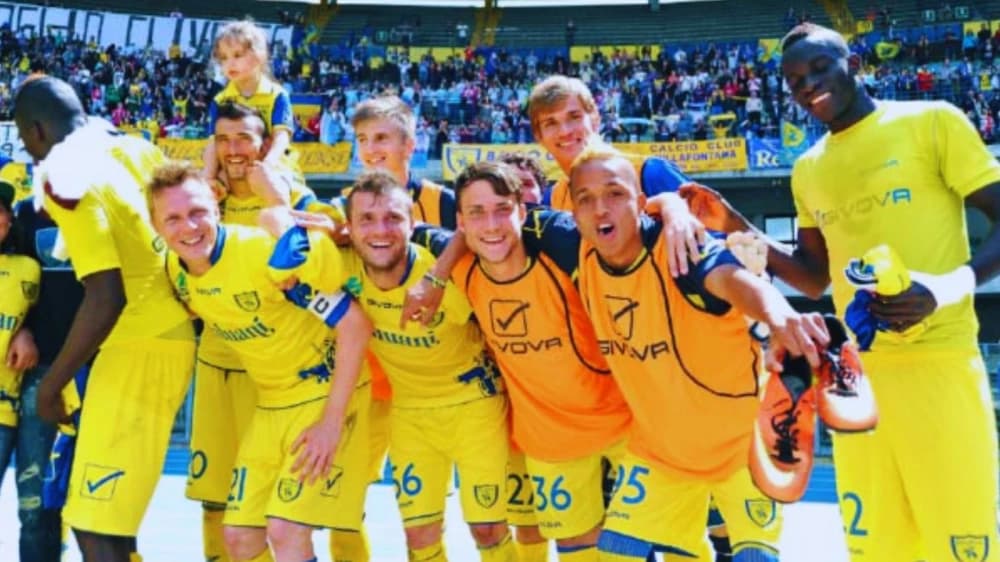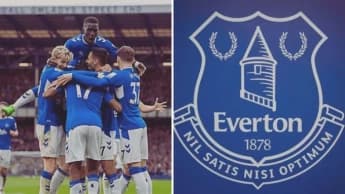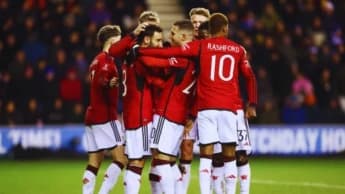ChievoVerona, a club rooted in community spirit, showcases an extraordinary journey from the depths of Italian football to the heights of Serie A and back, inspiring future generations.
Associazione Calcio ChievoVerona, commonly referred to as ChievoVerona or simply Chievo, is a notable name in Italian football, recognized not only for its sporting successes but also for its strong ties to the community and its remarkable journey through the tiers of Italian football. Established in 1929 and subsequently reestablished in 1948 and again in 2024, the club originates from Chievo, a small suburb with just 4,500 residents located in the city of Verona, in the Veneto region. Despite its humble beginnings and the small scale of its hometown, ChievoVerona has established a legacy that has significantly impacted the Italian football scene.
ChievoVerona, currently competing in Serie D, the fourth tier of Italian football, is undergoing a significant transformation under the leadership of Sergio Pellissier, the club's legendary former captain. In 2024, Pellissier led an innovative campaign that made the club the first in the history of Italian football to be revived through crowdfunding. This initiative successfully united nearly 800 contributors, showcasing the strong passion and faith in the club's future. The new ownership model has not only provided financial support but has also renewed a sense of identity and ownership among fans and the broader Chievo community.
Chievo's story is remarkable for its unique rise through all levels of Italian football. Starting from its humble beginnings in the lower tiers of amateur play, the club gradually progressed through the ranks, achieving promotion to Serie A for the first time in the 2001–02 season. This achievement was a historic moment—not only for the club but for Italian football overall—making Chievo the only team to ascend from the very bottom to the highest level of competition. In this journey, they defied expectations and challenged established hierarchies in the sport, becoming a symbol of hope and inspiration for smaller clubs throughout the country.
The team continued to build on its momentum. After its first season in Serie A, Chievo qualified for European competition in the following year, reinforcing its status as an underdog success story. These years at the top of professional football garnered international attention and respect for a club that, just a few decades prior, had existed in relative obscurity. On the pitch, Chievo’s disciplined and organized style of play was praised, and the club earned a reputation for exceeding expectations.
Throughout its time in the professional leagues, Chievo shared the 38,402-seat Stadio Marcantonio Bentegodi with their city rivals, Hellas Verona. This shared venue fostered a local derby that added an extra layer of importance to the club's development. Although it was the less popular club in terms of fan base and history, Chievo often performed well in the Verona derby, gaining respect from both fans and critics. These matches represented more than mere fixtures; they were powerful affirmations of identity and reflections of the club's resilience and aspirations.
Currently, ChievoVerona hosts its home games at the Comunale stadium in Sona, symbolizing its renewed dedication to the community and marking a new chapter in its ongoing journey. The club's revival in 2024 not only signifies a return to competitive play but also a resurgence of the core values and ambitions that have always characterized Chievo—resilience, unity, and the belief that even the smallest teams can aspire to greatness.
With its rich history, community-focused resurgence, and resilient spirit, ChievoVerona remains one of the most inspiring stories in Italian football.
Historical Overview
Associazione Calcio ChievoVerona, commonly referred to as Chievo, was established in 1929 by a small group of football enthusiasts from the Chievo area, a suburb of Verona. In its formative years, the club participated in local and regional amateur leagues, encountering the usual difficulties faced by small-town football clubs with limited resources and infrastructure. The outbreak of World War II interrupted football activities nationwide, and Chievo was significantly affected by this halt.
The club was reestablished in 1948 after the war, taking on the name 'Polisportiva Chievo', and started a steady yet determined ascent through the Italian football league system. For many years, Chievo remained in the lower divisions, upholding a robust local identity while progressively enhancing its infrastructure. The club mostly participated in regional amateur leagues throughout its history, seldom capturing the attention of the broader Italian football scene. It was not until the 1980s and 1990s that Chievo began to make noteworthy advancements.
The pivotal moment occurred in the early 1990s when Chievo achieved promotion to Serie C2, the fourth tier of Italian professional football. This milestone signaled the start of an extraordinary journey upwards in the Italian football hierarchy. With strong leadership and an emphasis on stability, Chievo continued to advance, earning promotion to Serie C1 and subsequently to Serie B by the end of the decade. The club's achievements were remarkable not just for their sporting accomplishments but also for their ability to consistently assemble a competitive team without the financial might of larger clubs.
Chievo's most significant achievement occurred in 2001 when the club was promoted to Serie A for the first time in its history. This was an unprecedented milestone for a team of Chievo’s size and background. During the 2001–02 Serie A season, Chievo surprised the football community by finishing in fifth place, exceeding all expectations and qualifying for European competition. The team's entertaining and effective style of play received praise from fans and analysts alike.
The club remained in Serie A for much of the next two decades, establishing itself as a mainstay in the top tier of Italian football. Chievo earned a reputation for being a well-structured and disciplined team, capable of competing against more established clubs. Even with a modest budget, the club consistently managed to avoid relegation and often finished in mid-table. During this time, Chievo hosted its home games at the Stadio Marcantonio Bentegodi, sharing the venue with Hellas Verona, their city rivals. The Verona derby became one of the standout events of each season, attracting large crowds and significant local enthusiasm.
Over the years, financial struggles and challenges on the field began to compromise the club's stability. After a long tenure competing at the top level, Chievo was eventually relegated from Serie A. The club continued in Serie B, but encountered more difficulties. In 2021, Chievo was removed from Serie B due to financial irregularities. Although the club tried to contest the decision, the exclusion was upheld, leaving the team without a spot in the professional leagues for the 2021–22 season.
In 2024, Chievo was officially reestablished, marking the beginning of a new chapter in its history. The refounding was led by Sergio Pellissier, the former captain and one of the most legendary players in the club’s history. He initiated a crowdfunding campaign that garnered nearly 800 investors, making it a groundbreaking instance in Italian football. This creative strategy revitalized the club, placing a strong focus on community engagement and transparency.
The newly restructured club has commenced its journey in Serie D, the fourth tier of Italian football, and has moved its home games to the Comunale stadium in Sona. The revival of Chievo, guided by Pellissier and supported by hundreds of fans, represents a pivotal moment not just for the club but also for Italian football, reflecting the unwavering dedication and spirit of its supporters.
Chievo has stood as a testament to resilience and ambition throughout its history. Originating from a modest neighborhood in Verona, its ascent to Serie A and later reinvention encapsulates the essence of Italian football, illustrating that even the smallest communities can attain greatness through hard work and solidarity.
Infrastructure and Player Development
Associazione Calcio ChievoVerona has consistently prioritized infrastructure and player development as essential elements for its growth and sustainability. Starting from its modest origins as a community-oriented club, Chievo has advanced through the tiers of Italian football, investing in a robust foundation that fosters the growth of young talent and enhances its professional operations.
Throughout its history, Chievo has made use of the Stadio Marcantonio Bentegodi in Verona for its home matches, sharing the venue with city rivals Hellas Verona. With a capacity of 38,402, the Bentegodi has been a key location in the club's ascent to Serie A and its following seasons in the top tier. Although Chievo’s fanbase is smaller compared to several of the larger Italian clubs, the Bentegodi has consistently created a lively atmosphere, particularly during local derby matches against Hellas Verona, which have become highlights of each season.
During the 2021–22 season, after being excluded from Serie B and the subsequent refounding of the club in 2024, Chievo relocated its home matches to the Comunale stadium in Sona, a smaller venue that marks a new chapter in the club's history. This move to Sona aligns with the club’s aim to stabilize its operations in Serie D, while also keeping strong connections to its local community.
In addition to the matchday experience, Chievo has regularly invested in its training facilities. Throughout the years, the club has developed several training sites to aid in the professional growth of its players. The Centro Sportivo ChievoVerona, situated in the Chievo district, has been the primary facility for the club’s youth academy and first-team training. This venue has played a vital role in nurturing local talent and offering a professional atmosphere for players to refine their skills and advance within the club. Recently, the club has upgraded its training facilities to include state-of-the-art fitness and medical resources, ensuring players have access to the best support to realize their full potential.
ChievoVerona has been dedicated to fostering young talent and creating opportunities for local players to enter the professional football scene. The club’s youth academy plays a crucial role in its player development approach, focusing on technical skills, discipline, and tactical awareness. The academy has reliably produced numerous talented players who have advanced to the first team, contributing to the club’s achievements in various competitions.
The academy encompasses various age groups, ranging from the youngest categories up to the Under-19 team, which takes part in the Campionato Primavera, the premier youth football league in Italy. The club's approach to youth development emphasizes establishing a solid technical foundation while also preparing players for a smooth transition into senior professional football. This development process is comprehensive, focusing on not just football skills but also on the mental and physical development of the players.
A major element of Chievo’s youth system is its dedication to nurturing local talent. The club's strong connections within the community and its presence in the Verona area have enabled it to scout and develop promising young athletes from the region. This focus has been crucial in fostering a bond between the club and its supporters. Numerous players who have progressed through the academy have successfully moved on to compete for prestigious clubs, both in Italy and internationally, bolstering Chievo's reputation for producing high-caliber footballers.
Alongside local talent, the club has actively searched for players beyond Verona, especially from other regions of Italy, aiming to find individuals who can adapt to Chievo’s disciplined and tactical playing style. This approach has resulted in a continuous influx of talent emerging from the academy and joining the first team, enabling the club to stay competitive even while working with a more modest budget than larger Serie A teams.
Although it is smaller in size compared to many Italian football clubs, Chievo has consistently upheld high professional standards in its infrastructure and player development efforts. This dedication is evident in the quality of the club's facilities, the achievements of its youth academy, and its ability to compete at the top levels of Italian football. The club is well-regarded for its efficient and organized approach to the sport, which encompasses all areas of its operations, including training methods and player health and fitness.
Chievo's player development system is bolstered by a dedicated team of coaches, analysts, and medical experts who strive to help players achieve their full potential. The club has made significant investments in cutting-edge fitness equipment, video analysis resources, and rehabilitation facilities to ensure that players are in optimal condition both physically and mentally.
The reestablishment of Chievo in 2024 has highlighted a renewed commitment to infrastructure and player development. Under the leadership of Sergio Pellissier, the club’s ownership model focuses on rebuilding the organization from the ground up, emphasizing long-term sustainability and growth. This approach includes ongoing investments in training facilities and the youth academy, ensuring the club can cultivate the next generation of players while remaining competitive in Italy’s lower divisions.
As the club progresses through Serie D, Chievo remains dedicated to its core values of player development, community engagement, and operational excellence. With a solid foundation and a revitalized sense of purpose, the club aims to ascend the Italian football hierarchy and compete at the highest levels of the sport once again. Investing in talent cultivation and infrastructure is crucial to this vision and is expected to play a significant role in Chievo’s pursuit to reclaim its position in Italy’s top division.
Team Accomplishments
Despite its humble origins, Associazione Calcio ChievoVerona has achieved significant success in Italian football throughout its history. The club's ascent through the ranks of Italian football stands out as one of its most remarkable accomplishments, highlighted by not just promotions but also strong performances at the highest levels of Italian and European football. Chievo's journey embodies the aspirations of a small community alongside the dedication of its players, management, and supporters.
One of the most significant and groundbreaking achievements in the club’s history occurred during the 2001–02 season, when ChievoVerona earned promotion to Serie A for the first time. This achievement was remarkable, particularly considering the club's humble beginnings. Having spent most of its early years in the lower divisions of Italian football, the ascent to Serie A was a pivotal moment that signified Chievo's journey from obscurity to the pinnacle of Italian football. This promotion transformed Chievo into one of the most iconic tales in Italian football history, as the club had advanced from amateur status to Serie A, a feat unprecedented by any other team in Italy.
When Chievo reached Serie A, it did not merely aim for survival; rather, it quickly established itself as a formidable contender. In their inaugural season in the top division, the club achieved a remarkable fifth place finish, which surprised critics and fans alike. This exceptional achievement granted the club a spot in European competition for the following season, a remarkable feat for a team recently promoted. Chievo’s capability to compete against wealthier and more historically successful clubs in Serie A highlighted the dedication, tactical discipline, and team unity that became defining features of their playing style.
ChievoVerona’s qualification for European competitions following their inaugural Serie A season was a significant achievement. The club secured a spot in the UEFA Cup (now referred to as the UEFA Europa League) for the 2002–03 season, just a year after earning promotion to Serie A. This was an unusual accomplishment for a club of Chievo's caliber, as many top-tier teams find it challenging to qualify for European competitions. Even while contending against some of Europe's largest clubs, Chievo’s entry into the tournament highlighted the team's competitiveness and determination at the highest level. The club’s achievements in Serie A, along with its participation in European football, further established its reputation as a club that can surpass expectations.
After making their debut in Serie A, ChievoVerona established themselves as a competitive force in Italy's top division for an extended period. Over the following seasons, the club demonstrated impressive performances, consistently defying expectations. Chievo frequently finished in the upper half of the Serie A standings, often challenging significantly wealthier and more historically prominent clubs. Their ability to maintain a stable mid-table position, despite having limited resources, highlighted their efficient and well-organized style of play. With each passing season, Chievo's reputation as a team capable of causing upsets against Italy's traditional football powerhouses grew stronger.
The club's consistent performances were evident in its ability to achieve significant results against some of the most prominent teams in Italian football. Although clubs like Juventus, AC Milan, and Inter Milan frequently dominated the top of the standings, Chievo demonstrated that a well-organized, compact team could hold its own against the best. This level of consistency not only garnered respect for Chievo but also solidified their status as one of the most stable teams in Serie A for more than a decade.
ChievoVerona’s local rivalry with Hellas Verona, known as the Verona Derby, became a hallmark of the club’s era in Serie A. Matches between the two teams, which both called the Stadio Marcantonio Bentegodi, were eagerly awaited and provided a charged atmosphere. The Verona Derby became emblematic of Chievo’s ascent, as the club transitioned from being seen as a small underdog to fiercely competing against a historically more established rival. During their tenure in Serie A, Chievo recorded many unforgettable victories in these derby matches, further cementing the club’s reputation as a formidable presence in the city of Verona.
Although ChievoVerona’s period in Serie A came to an end with relegation in the 2019–20 season, the club's resilience during its time in the top tier is noteworthy. Even after dropping down, Chievo continued to assert itself as a significant contender in the second division, working diligently to earn a return to Serie A. The club's dedication to rebuilding and its capacity to recover from adversity are vital aspects of its history.
Even after being relegated, Chievo continued to be a source of pride for its supporters and community. The club's determination and competitive spirit were reflected in their ongoing efforts in Serie B, as they aimed for a return to the top division. In 2021, Chievo faced additional hardships when they were removed from Serie B due to financial issues. However, the launch of a crowdfunding initiative in 2024 signaled a fresh start for the club. This creative approach instilled new hope for Chievo's future, and their resilience in the face of challenges continues to define their legacy.
In 2024, ChievoVerona was revitalized under the guidance of former captain Sergio Pellissier, who spearheaded an innovative crowdfunding effort to rescue the club. Close to 800 supporters joined forces to help revive the club, marking the first occurrence of such a campaign in Italian football. This represented a significant milestone for the club, ensuring its continuity and paving the way for a renewed effort to reclaim its status in professional football.
Despite facing numerous challenges in recent years, Chievo's achievements throughout its long history are indisputable. From its surprising ascent to Serie A to its noteworthy participation in European competitions and its historic rivalries in the Verona Derby, the club's story is a remarkable illustration of ambition, community, and resilience. Currently competing in Serie D, ChievoVerona boasts a rich legacy, and its ongoing commitment to long-term development fosters optimism for future successes.
Rivalries and Important Matches
Associazione Calcio ChievoVerona, although considered one of the smaller clubs in Italian football, has engaged in some fiercely competitive rivalries and significant matches throughout its history. The team's ascent from the lower divisions to Serie A has made it a vital element of the Italian football scene, and its local rivalries, especially with Hellas Verona, are among the most intense and notable games on the club's schedule. These rivalries and crucial matches have played a significant role in shaping Chievo’s identity, resulting in both challenges and unforgettable moments.
ChievoVerona's most significant and historically entrenched rivalry is the Verona Derby against Hellas Verona, the other football club based in the city of Verona. This local competition has been a defining aspect of Chievo's tenure in Serie A, as both clubs share the same stadium, Stadio Marcantonio Bentegodi. While Hellas Verona boasts a more established and successful history in the city, Chievo's ascent from the lower leagues to Serie A in the early 2000s added an extra layer of intensity to this rivalry.
The Verona Derby has emerged as one of the most eagerly awaited events in Italian football. Matches between Chievo and Hellas Verona are always intense, with fans from both sides eager to prove their superiority in the city. Historically, Hellas Verona has been the more dominant team, but Chievo’s ascent to Serie A, where they faced off against some of the top clubs in Italy, presented a formidable challenge to Hellas Verona’s reign in Verona. The rivalry goes beyond just the sport; it is intricately connected to the pride of the city and the communities that back each team.
During their time in Serie A, Chievo celebrated numerous memorable victories in the Verona Derby, with their 2–1 win in 2002 being particularly significant. This match occurred in the club's first season in Serie A, and the triumph marked a key moment for Chievo as they made their presence felt in the top tier of Italian football. These derby victories were treasured by Chievo supporters, representing their achievements and rising prominence in the sport. Even after Chievo was relegated from Serie A, the derby encounters continued to be fierce and meaningful, with the rivalry consistently creating excitement and drama in each clash.
Besides its local rivalries, ChievoVerona earned recognition by defeating some of Italy's most prominent and successful clubs. The team's capacity to challenge and occasionally conquer the top Serie A teams, despite having fewer resources than the major powerhouses of Italian football, contributed to its reputation as a resilient and well-organized squad.
One of the most notable upsets took place in 2006 when Chievo triumphed over Juventus with a score of 1–0 at their home ground. At that time, Juventus was a powerhouse in Italian football, making Chievo's victory a remarkable demonstration of the club’s tactical discipline and resilience. Matches like this became a defining aspect of the club's identity, highlighting its capability to contend with Italy’s top teams, even while being viewed as underdogs.
Another memorable match occurred during the 2002–03 season when Chievo managed to secure a 1–1 draw against AC Milan. At that time, AC Milan was one of the most successful clubs in European football history, performing at its peak. The draw was regarded as a significant achievement for Chievo, further solidifying their reputation as a team capable of competing against the giants of Italian football.
Chievo's ability to earn points against more prominent clubs, often utilizing a tactical and disciplined strategy, played a significant role in their consistency in Serie A and helped them remain competitive in a league largely dominated by financially strong teams.
Chievo's qualification for European competition in the 2002–03 season represented a significant achievement in the club's history. This success brought several notable matches that fans still cherish. During that season's UEFA Cup, Chievo faced some of Europe's top teams, enhancing their reputation on the continental level.
One of the memorable matches in Chievo's European journey occurred in September 2002, when they took on Tottenham Hotspur in the UEFA Cup. Chievo lost the first leg 2–1 at White Hart Lane, but they managed to secure a 1–1 draw at home during the return leg. Despite being eliminated, Chievo's performance in the tournament showcased their ability to compete with top clubs throughout Europe. The UEFA Cup campaign, although brief, is still cherished as a proud moment in Chievo's history, and the encounters with foreign clubs contributed to building the club’s reputation in Europe.
Although the club experienced a lengthy and successful tenure in Serie A, it faced several challenges along the way. The 2019–20 Serie A season proved particularly tough for Chievo, resulting in their relegation to Serie B after years of fighting to avoid it. Nonetheless, Chievo's determination in confronting the trials of Serie A, especially against Italy's top teams, made their journey all the more impressive.
Chievo’s relegation from Serie A triggered a series of important matches in Serie B as the club aimed to make a comeback to the top tier. Although these games lacked the prominence of those against Italy's leading teams, they were equally significant for the club’s future. The challenges faced during the 2020–21 Serie B season, when Chievo sought to regain promotion to Serie A, played a crucial role in shaping the club's next chapter. Despite experiencing financial challenges and setbacks, Chievo’s resilience shone through in their performances as they worked tirelessly to stay competitive in Italy’s second division.
In 2024, Chievo was reestablished with former captain Sergio Pellissier at the helm, signaling the start of a new era for the club. The crowdfunding campaign aimed at reviving the team instilled a renewed sense of optimism, uniting the fans around their cherished club. Although Chievo is currently competing in Serie D, the important matches from this new chapter in the club’s journey are sure to hold significance in the future as they strive to rebuild and ascend to higher tiers of Italian football.







